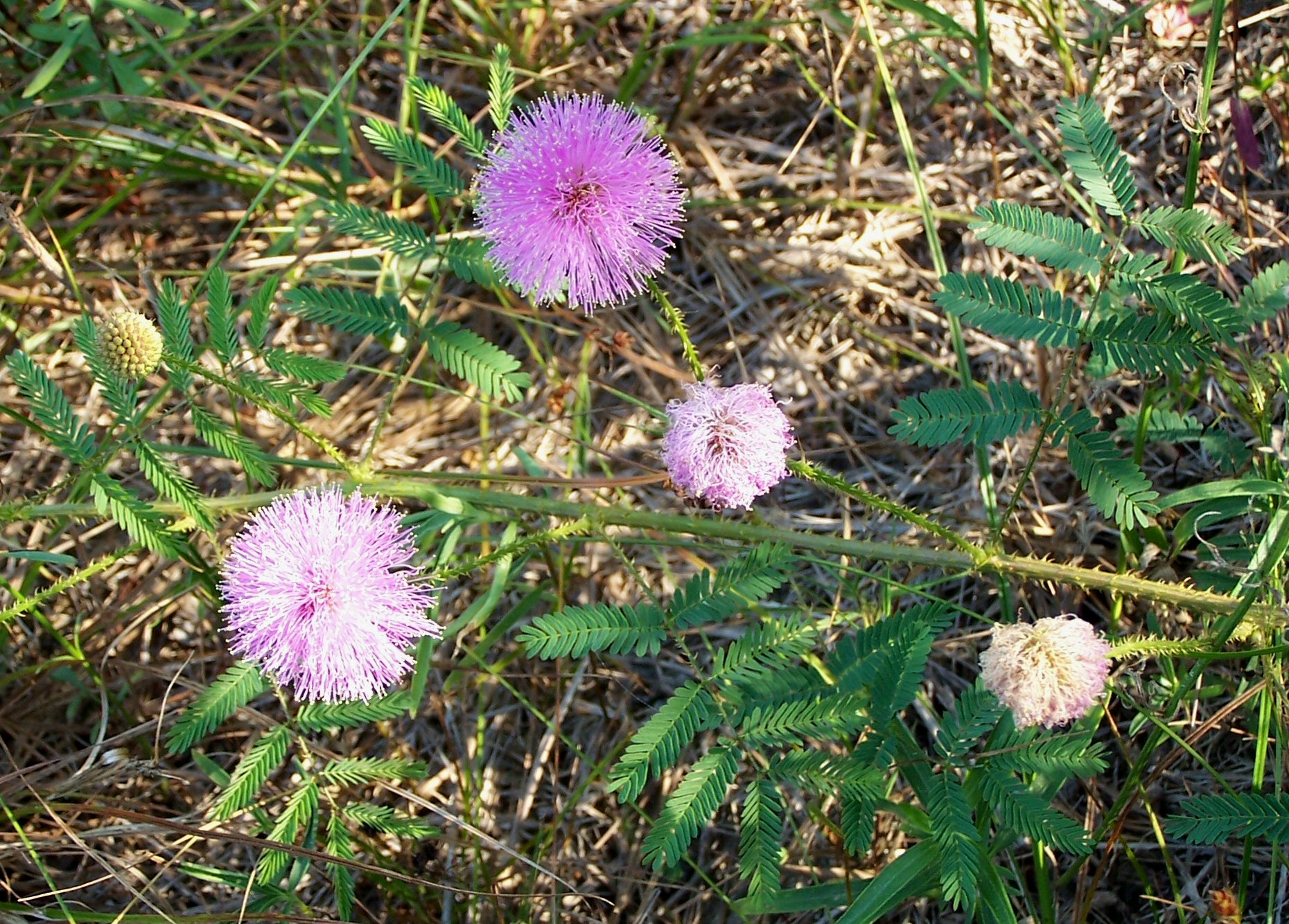Mimosa pudica ... sensitiva revisted
Faithful readers will recall my earlier blog entry on this unusual plant with the ability to close its leaves when touched, revealing a rather bristly side to its personality.
In that earlier entry, I wrote of encountering this 'tropical' plant the wilds of the Ozarks and wondered if any of my childhood friends had also noted it. So I asked my old friend Deva Hupaylo, who is a lot smarter than I am and knows far more about plants than I do, if she happened to recall it. She knew what I was talking about and promised to get back to me on it.
I heard nothing more from her and got caught up in other issues, but yesterday, I noticed that somebody from the Ozarks had been looking online for Deva, for the search had popped up on my site meter. I mentioned this to her and also asked again about the shy plant of my childhood, reminding her that she hadn't yet gotten back to me on my query about the Mimosa pudica ... or was it the Mimosa sensitiva? She replied this morning by email:
You are right I never got back with you about the mimosa sensitivia, which is what I think it is. I found that there are a lot of different varieties of that little plant, and most of them refer to the pudica and sensitivia as the same plant. All I know is that one of them definitely thrives in the shallow soil of Fulton County, AR. It provided an amusing magical moment in my younger years.I've just checked the spelling since Deva writes "sensitivia," but my spelling of "sensitiva" looks correct. If it really is even sensitiva. I'm still wondering if it's pudica. Anyway, I replied (just this morning) to Deva's email:
We should write an article about the mimosa sensitiva (or pudica) and get a footnote in history as the two scholars who established that the range of the mimosa extends beyond the tropics. Or has that already been done? I really liked this plant, too, despite its thorny personality, because of its animated nature. It was magical.I've often wondered if I could become 'famous' writing that article. However, despite my inclination toward musing that I could accomplish substantive things in other fields, I've also suspected that the scientists who study things botanical might already have noted this temperate variety of the mimosa.
My suspicions were correct, and the query is now answered, so consider these final words an update so quick that it's less an update than a part of the blog entry itself ... which it is. From one more online search, I have just discovered that the true scientific name for this variety of mimosa is Mimosa nuttallii, also known as the "Sensitive Brier." This is a hardy cousin of the tropical Mimosa, a separate species, in fact, and it grows all across Oklahoma -- as you can see in the nuttallii link provided -- and actually all the way from the "Great Plains southeast to Alabama." The tropical Mimosa looks very similar to this temperate species, but as soon as I saw the picture of the nuttallii (see above), I exclaimed, "That's it!"
Mystery solved.



4 Comments:
I was astonished where I found information about a plant I enjoyed in my childhood. That area was between Hennessey, Kingfisher, and Crescent, Okla. In that part of the world the plant is called "Osage Rose". I enjoyed your interesting blog.
Texas Chef, thanks for the visit. I'm glad that you found my blog entry about this plant interesting. I don't usually write about plants, but I do write about practically anything that falls within my range of interest, and this plant has always interested me.
Thanks for the detail about the name "Osage Rose." I didn't know that about the Mimosa.
Jeffery Hodges
* * *
Thanks for this article! I saw this plant today (East Texas) and immediately recognized it as related to my mimosa tree. I had no idea what it was called, though. Thanks again! -AH
Glad to be of help. I love this plant, brings back memories from my childhood.
Jeffery Hodges
* * *
Post a Comment
<< Home